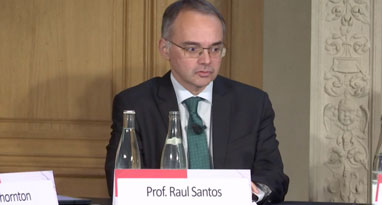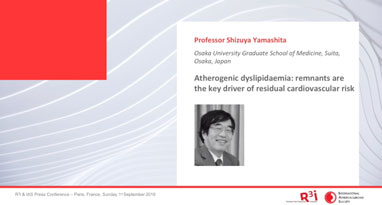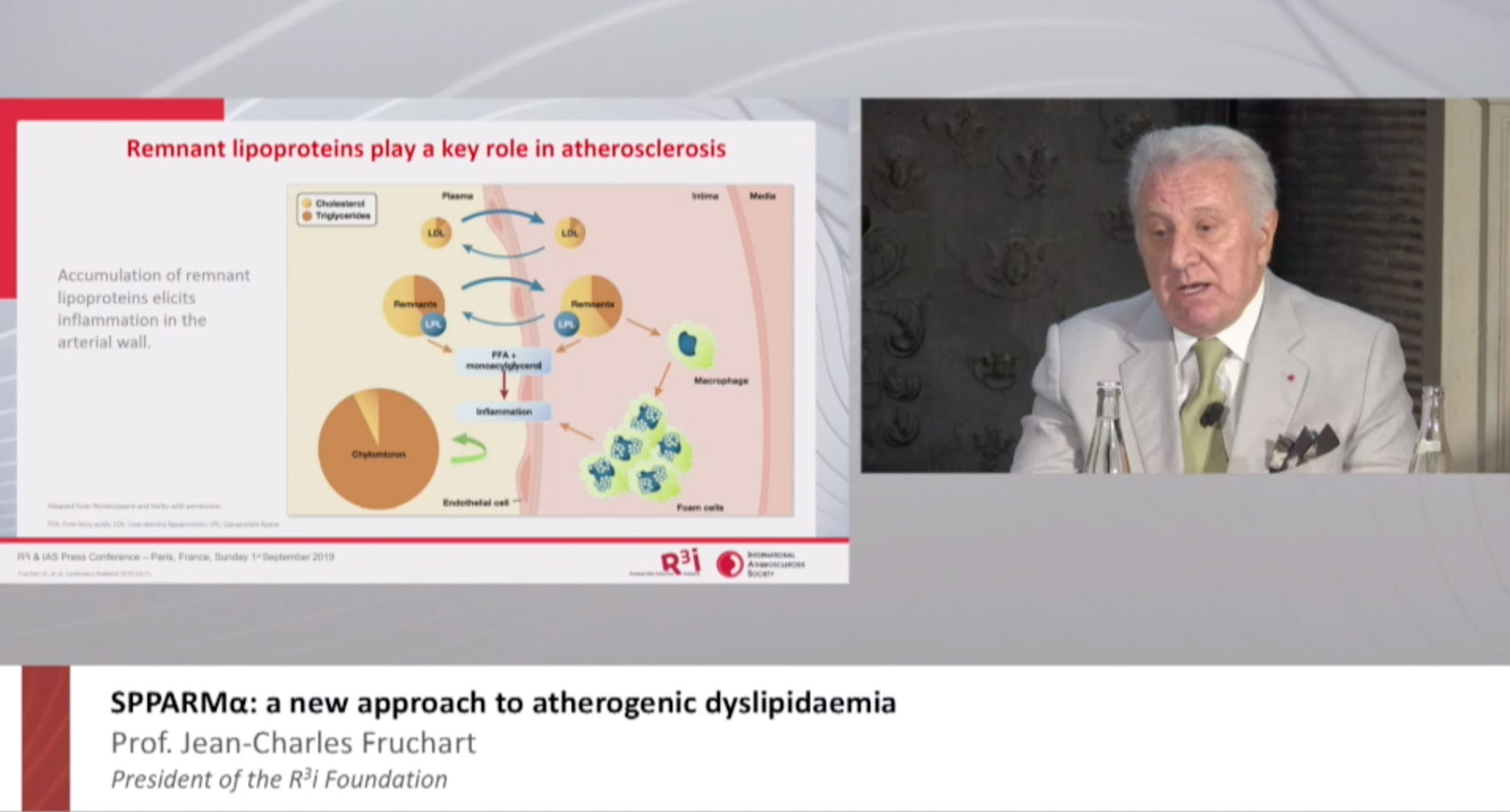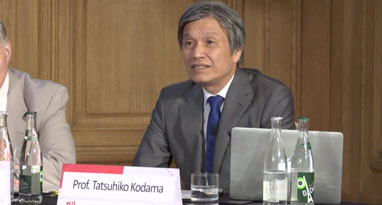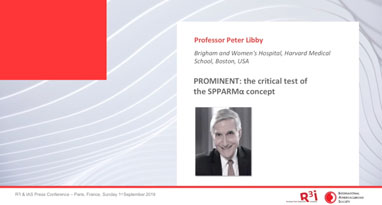
Login
Register







| Your login | |
| Your password | |
| Confirm your password | |
| Your email | |
| I agree to receive the R3i newsletter | |

 R3i & IAS Joint Consensus Statement
R3i & IAS Joint Consensus StatementIn a Joint press conference of the Residual Risk Reduction Initiative and the International Atherosclerosis Society, held in Paris on September 1, 2019, five world-renowned experts discussed the potential of a new therapy, a highly selective peroxisome proliferator-activated receptor alpha modulator (SPPARM-alpha) agonist.
This new treatment may address the gap in managing the residual risk of heart attacks and strokes that persists in high-risk patients despite best guideline-recommended therapy including intensive statin treatment.
Importantly, this high residual cardiovascular risk requires therapeutic interventions that go beyond LDL-C lowering by targeting other modifiable risk factors. One notable factor is atherogenic dyslipidaemia, characterised by high triglyceride (TG)-rich lipoproteins and their remnants, as well as low plasma levels of high-density lipoprotein cholesterol (HDL-C).
The experts discussed the thinking behind the discovery of this highly selective peroxisome proliferator-activated receptor alpha modulator (SPPARM-alpha) agonist, pemafibrate, its mechanism of action and its potency and selectivity. They also discussed its efficacy profile, especially in lowering TG-rich lipoproteins and their remnants, a key contributor to residual cardiovascular risk, as well as favourable safety profile, especially for liver and kidney functions.
The key question is whether this SPPARM-alpha agonist can reduce residual cardiovascular risk. This is being tested in the ongoing PROMINENT trial. The underlying hypothesis of PROMINENT is whether reducing TG-rich lipoproteins with pemafibrate translates to a reduction in cardiovascular events such as heart attack and stroke in patients with type 2 diabetes and atherogenic dyslipidaemia, already treated with intensive statin therapy.
